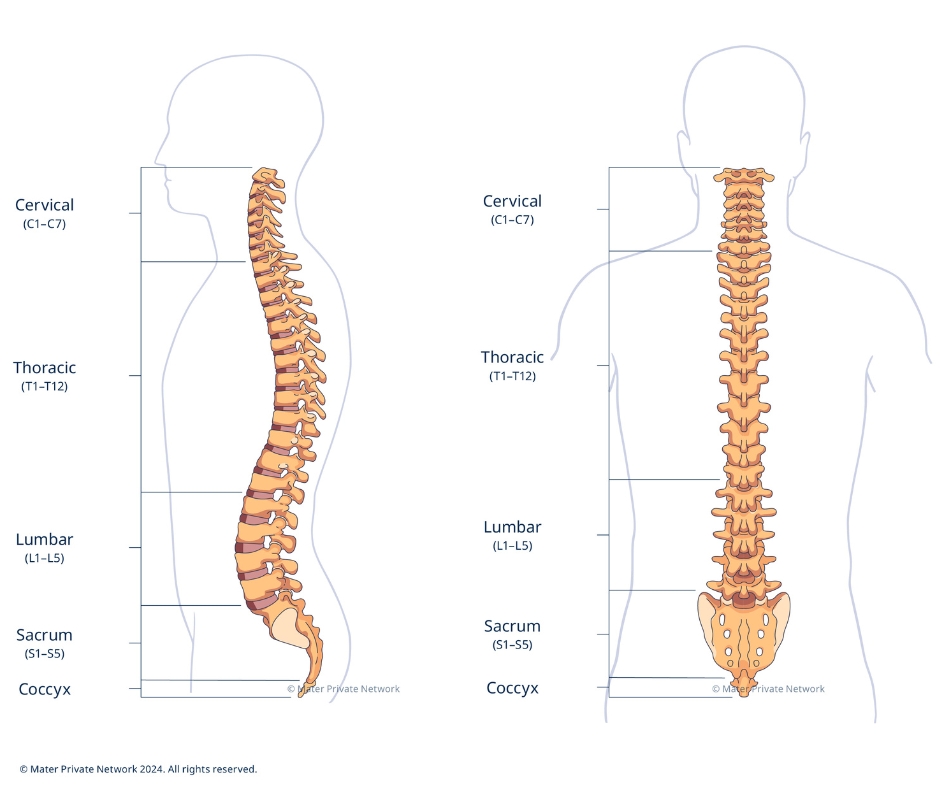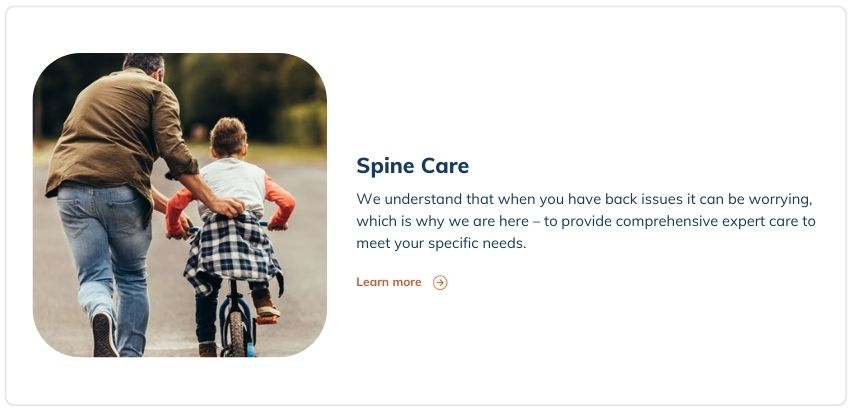Back Pain
What is back pain?
Back pain is any pain in or around the spine in your upper (thoracic) or lower (lumbar) back. Back pain is very common. It is usually categorised as one of the following;
- Acute back pain: occurs suddenly and lasts from a few days to a few weeks
- Subacute back pain: can occur suddenly or come on over time and lasts between 4 and 12 weeks
- Chronic back pain: lasts longer than 12 weeks

What are the most common symptoms of back pain?
Back pain can range from an aching feeling to a stabbing or burning sensation. It may also spread down your leg, or worsen if you twist, bend, lift, stand or walk.
When should I see a doctor?
Most back pain improves with rest over time, usually within a few weeks. However, you should contact your doctor if your back pain:
- Last for more than a few weeks
- Is severe and doesn't improve with rest
- Spreads down one or both legs
- Causes weakness, tingling or numbness in your legs
- Is accompanied by unexplained weight loss
In rare cases, back pain can indicate a serious medical problem. Seek immediate care if your back pain:
- Follows a fall, blow to your back or other injury
- Is accompanied by a fever
- Causes new bowel or bladder problems
What causes back pain?
Back pain can occur for many reasons. Some of the most common causes include:
- Muscle or ligament strain caused by either repeated heavy lifting or a sudden awkward movement
- Herniated or ruptured disks. Disks act as cushions between the bones (vertebrae) in your spine and if they are damaged they can bulge or rupture and press on a nerve
- Osteoarthritis can lead to a narrowing of the space around the spinal cord, a condition called spinal stenosis
- Osteoporosis can lead to your spine's vertebrae developing fractures if your bones become porous and brittle
- Spondylolisthesis, when a vertebra in your spine slips out of place
- Ankylosing spondylitis, a specific type of arthritis of the spine
How can the cause of my back pain be diagnosed?
Your doctor will take your medical history and examine you to check for sensitivity, numbness and muscle weakness. They will also check to see how far you can move your head forward, backward and side to side.
You may also require imaging tests to uncover the cause of your back pain. These tests may include:
- X-rays which can expose fractures, degeneration and issues relating to spinal alignment
- CT scans which combine multiple X-ray images taken from different directions which together provide detailed views of the spinal canal and surrounding tissues
- MRI which uses radio waves and a magnetic field to create detailed images of bones and soft tissues, including the spinal cord, spinal discs and the nerves coming from the spinal cord
How can I relieve the pain in my back?
Over-the-counter pain medication is often enough to help alleviate back pain. Physical exercises can also help you to correct your posture and alignment, and to strengthen your back. Ice or heat packs may also help.
How is back pain treated?
If these solutions don’t help, your doctor may prescribe other measures including:
- Physiotherapy
- Steroid injections. You may require corticosteroid injections near the nerve roots to help with pain. Numbing medications can also be injected to relieve your neck pain.
- Surgery: surgery for back pain may be suggested depending on the cause of your back pain. However, not everyone is a candidate for surgery, even if the pain persists. Your consultant will consider the risks and possible benefits of the surgery or procedure.
How can I avoid back pain?
- Exercise. Regular low-impact activities such as walking and swimming that don't strain or jolt your back can increase strength and endurance in your back.
- Build muscle strength and flexibility by doing abdominal and back muscle exercises to strengthen your core.
- Maintain a healthy weight.
- Be aware of your posture and try to stand and sit without slouching.
- Avoid heavy lifting










